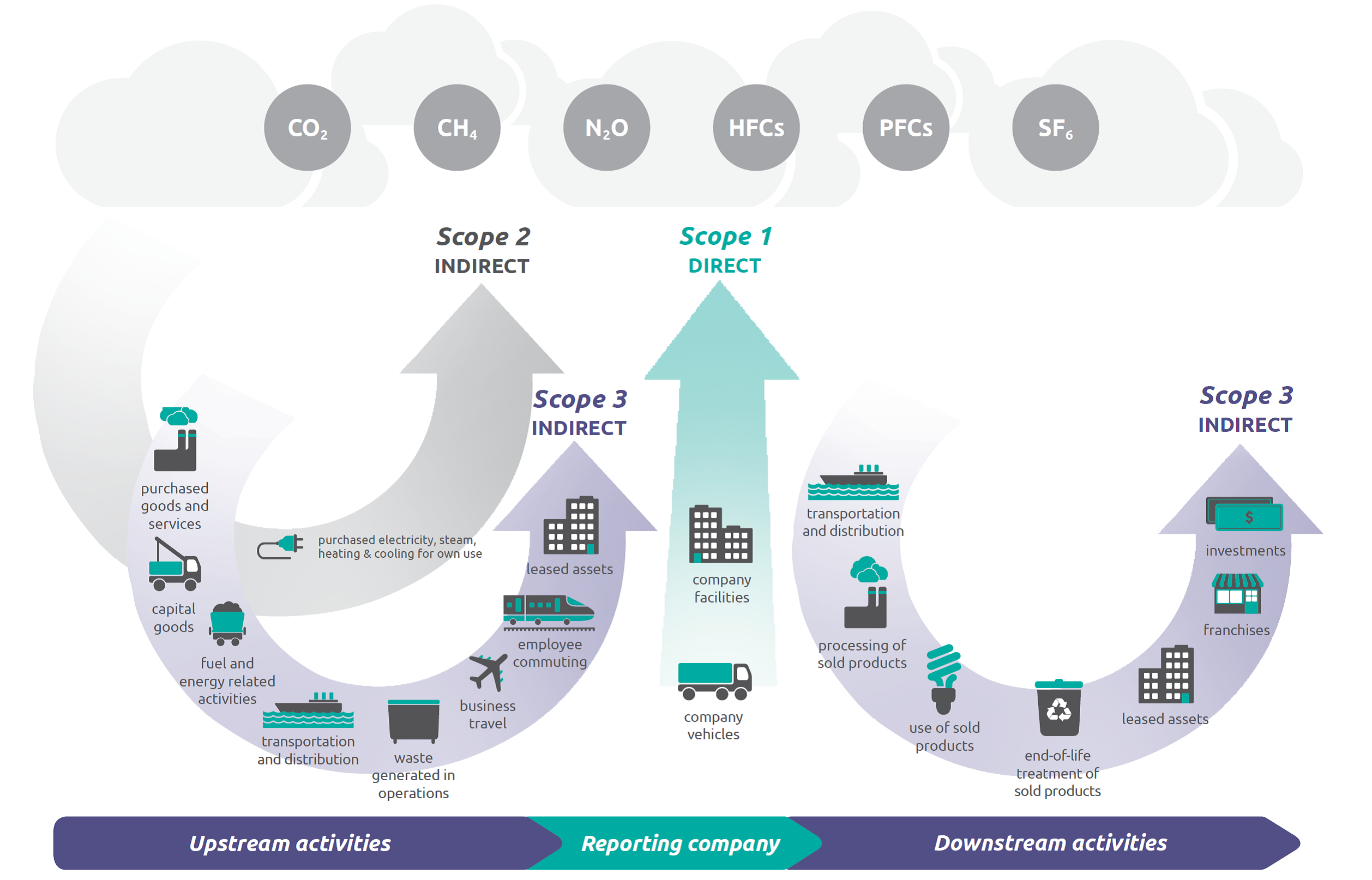Scope 1-2-3 Carbon Accounting


The concept of carbon accounting has become an important pillar of modern business. Carbon accounting not only provides companies with a tool to accurately measure their carbon footprint, but also provides an essential basis for developing effective sustainability and corporate social responsibility strategies.
In our previous blog, we highlighted how the Corporate Sustainability Reporting Directive (CSRD) encourages companies to be more transparent around environmental, social and governance (ESG) issues. This development highlights the need for organizations to be not only financially, but also environmentally and socially accountable. In this blog, we take a closer look at the importance of carbon accounting within today's climate-conscious business world and how it contributes to the goals of the CSRD.

So the importance of good carbon accounting for businesses is increasing dramatically. Below we highlight some of the main reasons to get this right.
Regulations and compliance:
The Corporate Sustainability Reporting Directive (CSRD) requires companies to report on the environmental and social impact of business activities, and requires the annual review (assurance) of reported information. Detailed information on greenhouse gas emissions is an essential part of this.
Organizations that are transparent about their efforts to reduce their carbon footprint, and are compliant with international standards, also enhance the trust of their stakeholders and thereby strengthen their branding.
Changing market demands:
Sustainability performance is becoming increasingly important to investors. Proven carbon footprint reductions can make a company more attractive for investments, or provide a competitive advantage in tenders.
Consumers and employees also increasingly value sustainability. Transparency about carbon reduction strengthens brand image and attracts environmentally conscious customers and purpose-driven employees.
Net-zero ambitions:
Proper carbon accounting helps set realistic emission reduction targets, crucial for the transition to net-zero emissions.
By monitoring emissions, companies identify concrete reduction opportunities, such as energy savings, use of renewable energy sources, and logistics optimization.
Annual monitoring: Regular emissions measurements allow for measuring progress and adjusting strategies to achieve net-zero targets.
Therefore, reliable carbon accounting is not only a regulatory issue, but also a strategic tool for sustainable growth and strengthening the market position .

Source: WRI/WBCSD Corporate Value Chain (Scope 3) Accounting and Reporting Standard (PDF) , page 5.
Carbon accounting is a method for companies to quantify and manage their greenhouse gas emissions. This is done according to the requirements of the Greenhouse Gas Protocol (GHG Protocol), the most internationally recognized standard. Central to this protocol is the Scope 1-2-3 framework, which provides a complete picture of an organization's carbon impact. The graphic above illustrates the extent of Scope 1-2-3 emissions across the value chain.
Scope 1: Direct emissions from the organization.
This refers to all direct emissions caused by an organization. These include greenhouse gas emissions from combustion processes in its own buildings or factories, and emissions from company vehicles. Scope 1 is the most direct and often the most controllable category of carbon emissions for a company.
Scope 2: Indirect emissions from purchased energy.
This category covers indirect emissions that result from energy purchased and consumed by the organization, such as electricity, steam, heating and cooling. While these emissions are not produced directly by the organization, they are a result of its energy use and thus a major focus of the overall carbon footprint.
Scope 3: All other indirect emissions in the value chain.
Scope 3 is the broadest category and includes all other indirect emissions that occur in the organization's value chain. This can range from the production of purchased materials to emissions associated with the use of the products the company sells. This category is often the most complex to measure, but is crucial for a full understanding of an organization's climate impact.
Performing Scope 1-2-3 calculations correctly can seem very complex at first. That's why we support or relieve you of the entire process through the Dispersed Carbon Accounting Dashboard. First, we facilitate correct data collection in an efficient manner. We then guarantee that the calculations are performed according to the requirements of get Greenhouse Gas Protocol. So you never worry about the correctness of your Scope 1-2-3 calculations. Finally, our Carbon Accounting Dashboard is ISO14064-certified, which means our clients can be confident that reports meet the strictest requirements for CSRD compliance.

Once we have the full picture of an organization's Scope 1-2-3 impacts, we also advise on setting realistic reduction targets. We do this in line with the principles of the Science-based Targets Initiative (SBTi). Based on the insights gained and the targets set, we formulate concrete scenarios for reducing the impacts of your organization.
In short, we offer valuable support in the accurate calculation and reporting of Scope 1-2-3 emissions, through our pragmatic approach, expertise and software. We provide transparent calculations, actionable insights and compliance with laws and regulations. That way, we ensure your organization takes a significant step towards net-zero emissions.
Want to know more about Scope 1-2-3 Carbon Accounting, or do you have a specific question about the solutions we offer? Then make an appointment with one of our specialists.